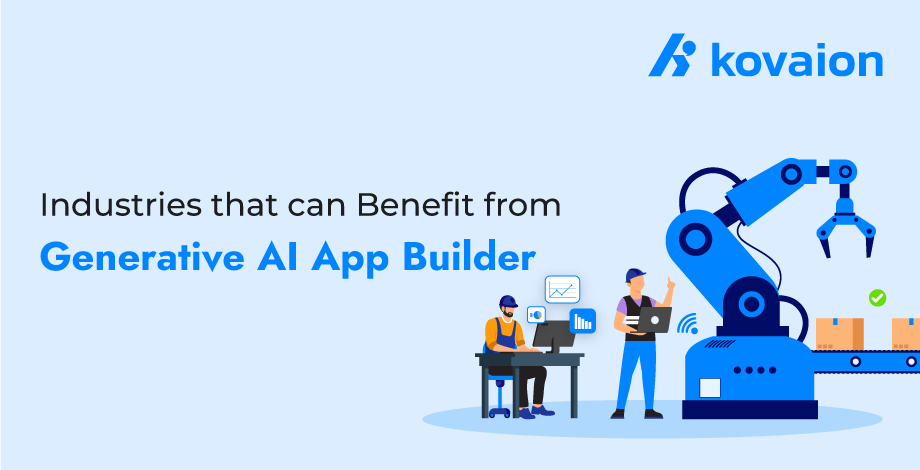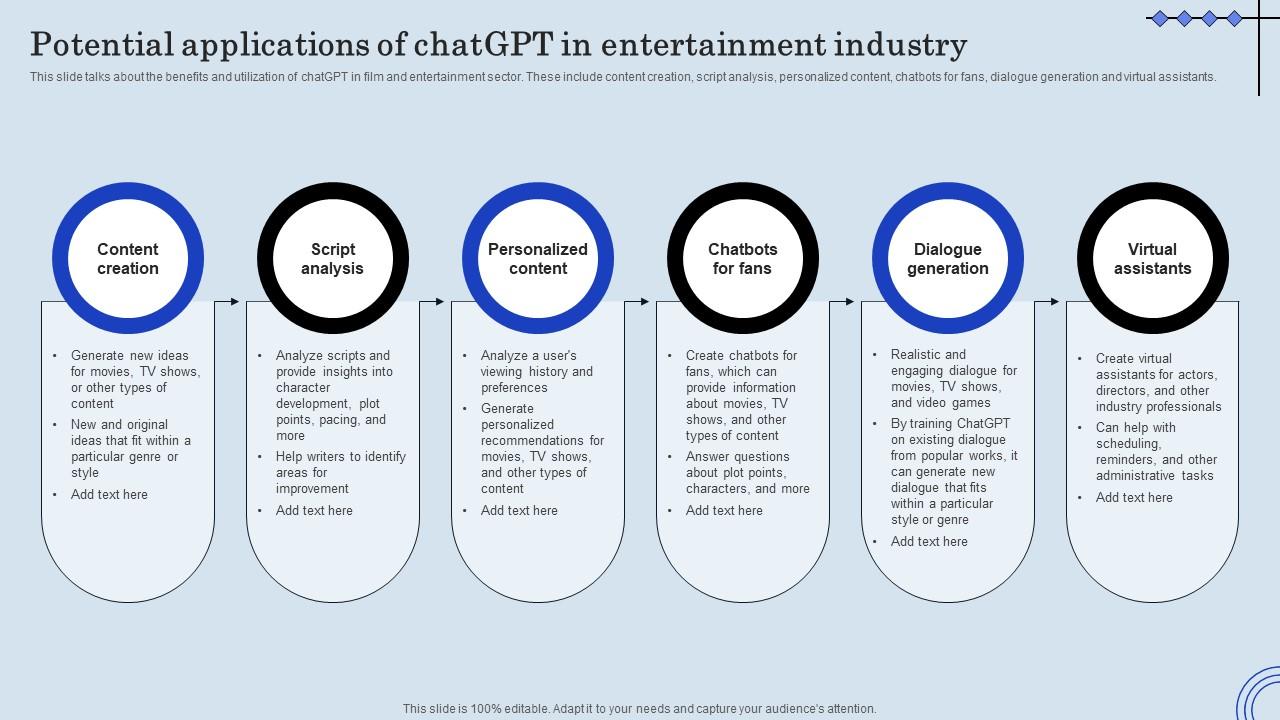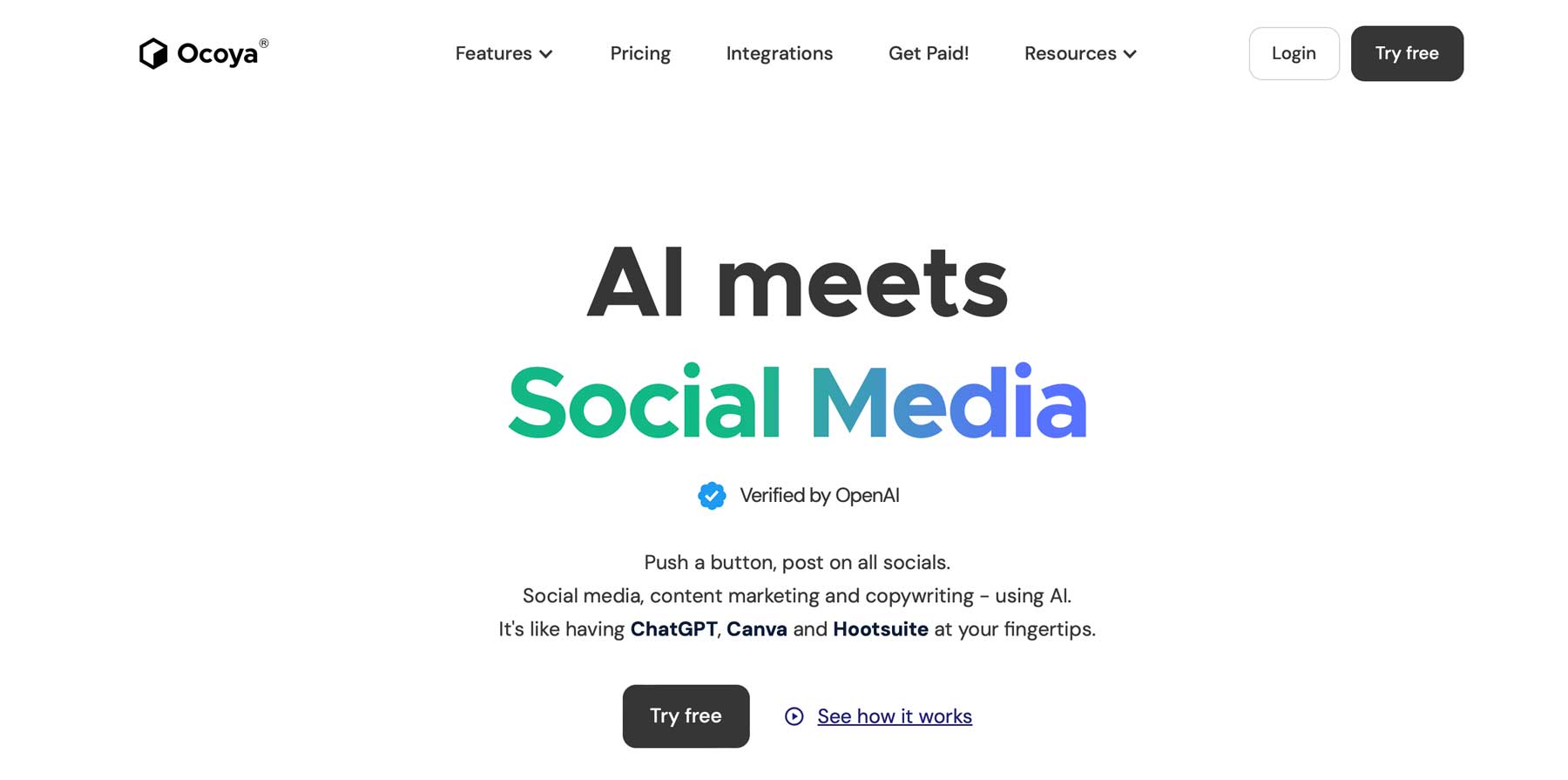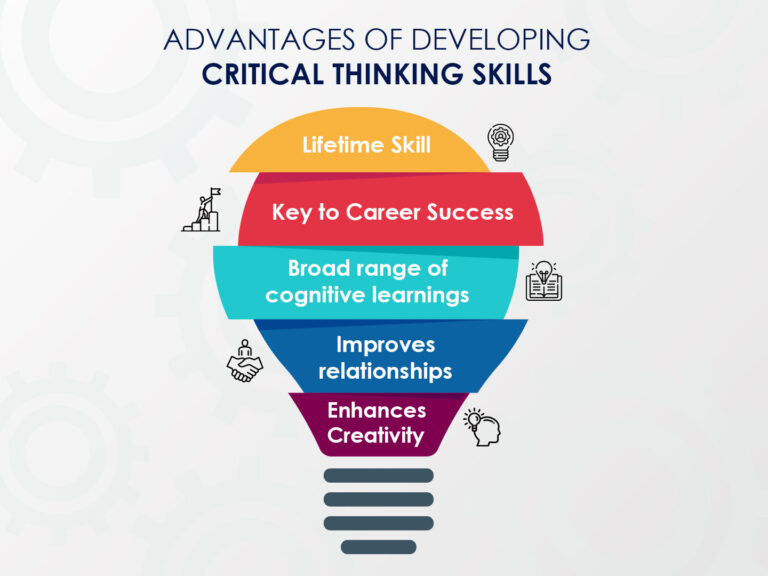
AI question generators are becoming increasingly popular across various sectors. These tools, like QuestratorAI, offer a potent method to transform knowledge into interactive content, benefitting numerous groups. They empower users to extract insights from data more effectively and present it in easily digestible formats. Imagine an AI that could effortlessly sift through documents to create questions, streamlining research and generating innovative concepts! This analysis dives into specific sectors benefiting from this transformative technology.
E-learning Platforms

Source: kovaion.com
E-learning platforms significantly gain by incorporating AI question generators. They quickly craft quizzes and exams tailored for specific courses, catering to the diverse needs of learners. This customized approach dramatically improves comprehension and retention. This technology ensures a richer, more personalized learning experience for everyone! Generating varied assessment questions, with different question types is quick, compared to the manual efforts involved before. This time efficiency helps course designers spend more time designing impactful lesson plans rather than repetitive assessment question-making. Imagine effortlessly creating varied assessments with the assistance of these AI-powered question tools!
Market Research Teams
Market research teams can use AI question generators for insightful explorations. Analyzing customer feedback becomes dramatically easier and more comprehensive. By leveraging AI question generators to generate multiple lines of questions that explore different angles within market trends or products/services, researchers can explore many potential answers and gain nuanced understanding from various consumer insights and motivations. In short, these advanced AI systems support thorough data analysis!
Content Creators
Content creators utilize these AI tools for captivating, engaging material. Generating a wider range of intriguing questions from articles and blog posts fuels original viewpoints, making their creations much more stimulating! With AI-powered tools, these innovative systems instantly identify keywords or concepts and rapidly draft inquiries surrounding them! Thus content creators have innovative approaches towards improving comprehension within content they already made or are crafting. They generate a constant supply of questions on varied topics for creating compelling written or recorded content. For those producing engaging content, this significantly cuts down creation times!
Customer Service Departments
AI question generators play a vital role in customer service. Quick responses to customer inquiries enhance efficiency in dealing with multiple client inquiries quickly. Through use, they help resolve customer problems quickly, saving time, and ultimately, costs for a company. A key benefit in this application, in generating specific and efficient customer-service responses, using customer feedback to produce targeted and appropriate responses with specific content! Moreover, customer experience improvement and increased efficiency can quickly make a big impact to customer service staff morale.
HR Professionals
HR professionals now have AI assistance for analyzing and understanding candidates. Tools using AI assist HR in efficiently sorting and ranking qualified candidate responses quickly, and precisely filtering these responses is more efficiently manageable by implementing these new advancements! They significantly help in optimizing candidate recruitment! Creating targeted recruitment and employee experience are quickly and efficiently handled using these AI tools, optimizing human resources practices across multiple levels, reducing recruitment time and improving hiring metrics, improving candidate satisfaction levels by engaging with candidates promptly in tailored ways!
Legal Teams

Source: slideteam.net
Legal teams are finding new possibilities in AI-driven question generation, including extracting useful and insightful inquiries from cases to analyze. Legal processes greatly benefit, generating insightful points for case preparations more quickly. With this technology, teams can better prepare responses, strategies, and build compelling arguments much quicker than before. Thus improving team work efficiency within law practices can dramatically improve results. Producing comprehensive summaries to help efficiently interpret legal data by AI driven methods improves the ability of lawyers to stay current and organized!
Note: Specific figures about the extent of these benefits (i.e. percentage improvement) are not provided in the available sources.
Top 7 Use Cases for Question Generation Tools Across Industries
Question generation tools are revolutionizing how we learn, work, and do business. These tools can take a large amount of text, then come up with important questions and even assess different options for answers. This is more than just clever; this is practical and powerful across many areas.
1. Creating Engaging Learning Materials
Question generation powers better study materials. It’s easier to grab a reader’s attention by giving them relevant and well-crafted questions at every stage, creating powerful tools for education and engagement. Learning should feel dynamic, and questions spark thought processes for every learner. They move the learner from consuming to becoming active. Simple questions, easy to read, direct and challenging content and well-prepared examples work wonders for education. With engaging questions to lead learning, learners retain info easily.
2. Automating Customer Support
Imagine a system that responds to every customer concern right away and correctly. That’s what this new technology brings to Customer Support. By automatically generating questions tailored to user requests, customer issues get resolved smoothly and accurately, minimizing wait times for responses and inquiries. These intelligent solutions can cut customer support costs down dramatically. Fast response means better customer experience overall.
3. Conducting Efficient Market Research

Source: springernature.com

Source: elegantthemes.com
This technology speeds up market research, allowing researchers to collect and analyse customer insights much faster. Marketers get more relevant questions to ask quickly by applying this process to large amounts of information; therefore understanding trends will be possible instantly, letting companies adapt. By using these efficient questions and creating highly structured questionnaires, accurate data can be obtained in record time. This tool is very cost-effective as well. By automating much of the research process, costs are minimized, leading to rapid ROI.
4. Enhancing Knowledge Management Systems
Think of your company’s vast internal data, making that usable to every department, and the answers to employee queries to be available faster and accurately. Question generation creates an intuitive, more powerful way to look into your own data and insights to empower team performance and collaboration within departments or organizations. Tools generate pertinent questions from existing material in order to fully analyze content efficiently. A seamless knowledge repository comes from a dynamic use of technology that creates organized answers to all essential and regularly arising employee and management questions.
5. Developing Interactive Content
Interactive content like e-learning, online quizzes, or games draws the reader and keeps attention span up through various questions; these are easy to put together, too! The software automates the process, cutting development time, boosting reader interaction with the given topic. Effective tools use an abundance of questions.
6. Improving Exam Preparation
For exam preparation, practice questions are key. Generating a bank of practice questions lets learners prepare effectively. They help examine specific parts, boosting exam outcomes through repeated practice. By preparing diverse sets of well-formulated exam questions, individuals can fine-tune understanding, identify gaps, and bolster performance on exams; especially standardized exams. Exam preparations become dynamic and well organized. This leads to enhanced learning outcomes in general as learners and professionals focus more clearly on exam prep.
7. Generating Leads for Sales Teams
Lead generation involves more than just gathering names. Questions filter out people that are really interested in buying from a general audience of customers and prospects, allowing targeted contact. This helps cut down wasted effort, helping reps understand needs from prospect data efficiently and precisely, improving leads. Sales teams gain better lead qualification, helping get quality potential clients much faster. Using this to its fullest gives much greater efficiency for the sales cycle. Question generation tools can dramatically refine sales processes and make them more effective.

Source: els-cdn.com
How Question Generators Increase Efficiency and Productivity
Question generators are powerful tools for boosting productivity. They are more than just a time-saver; they transform how we approach content creation, learning, and customer interaction. Their value extends across diverse fields from education to marketing.
Imagine needing a massive pool of questions for an important research study, survey, or product testing process. Now envision that, with the help of a smart tool, you instantly get those questions—without spending days brainstorming and writing. These generators work efficiently by taking existing text (articles, documents, or other content) and pulling out essential questions to quickly understand, dissect, and act.
Efficiency gains:
- Reduce manual effort: Less time needed to create questions.
- Improved accuracy: Auto-generated questions maintain quality.
- Large scale projects: Great for assessing massive volumes of information.
- Fast production: Generating questions is notably fast, helping your team gain insights much quicker than human writing.
Save Time and Resources
Question generators dramatically save time by automating the questioning process. Imagine a teacher needing dozens of review questions to prep for the mid-year exams. Generating these from lessons already stored would significantly decrease preparation time and potential for errors.
Companies gain massive boosts too. When crafting a product survey for user feedback, question generators produce survey questions. A survey, complete and ready to send out, would not take hours but perhaps an hour.
- Lower labor costs: Automating this repetitive process helps lower workforce expenses and budget strain.
- Rapid turnarounds: Produce outputs quicker than traditional methods and provide instant gratification.
- Faster feedback: Collect, filter, and assess responses quicker, resulting in significant boosts in insights.
Improve Content Engagement
By having a more focused group of targeted questions for an article, discussion, or video, we gain immediate feedback. Engaging customers or audience members is crucial in almost every business activity, and question generators provide content that holds the reader’s attention by engaging more deeply with the content’s topics.
- Boost interaction rates: Asking thoughtful, targeted questions keeps users more engaged than passive content.
- More detailed insights: Generating in-depth discussions unlocks user opinions.
- Increased interaction levels: This is crucial in content marketing; the quality questions help raise awareness.
- Heightened audience comprehension: People are curious about what to answer in depth and discover new understandings within the article’s or topic’s meaning.
Enhance Learning Outcomes
In education, question generators empower educators to produce study material swiftly, ensuring complete clarity and accurate concepts to boost their learning abilities and engagement with students. Students quickly engage with the content’s important points to absorb vital details by creating interactive elements that stimulate discussion.
- Improve knowledge retention: Relevant questions engage students by drawing their active attention, ensuring deeper learning.
- Increased critical thinking: Engaging in in-depth question and answer sessions boosts a student’s critical thinking capabilities, as students must synthesize and reflect their knowledge to provide better responses.
- Promote deeper understanding: Quality questions uncover a deeper understanding of the concept. Question generation is used to enhance the quality of lessons, especially the ability to get learners thinking about concepts critically. This encourages further exploration of their knowledge beyond the rote learning.
Boost Customer Satisfaction

Source: studentshare.org
Personalized interaction improves customer experiences in diverse aspects. In the tech industry, software, particularly apps and programs, often involve complex and potentially frustrating procedures. For companies hoping to produce outstanding apps or software, questions must be well targeted to improve the customer experience.
- Improved responsiveness: Tailoring questions to customers shows they are heard, creating a deeper and more satisfying experience.
- Higher retention: A question and answer strategy to answer consumer concerns improves product engagement and retention, in turn boosting profitability for any organization.
- Reduced support tickets: Clearly answering basic inquiries through content proactively decreases technical support issues and potential costs, enhancing the efficiency of operations, boosting sales and reducing support expenses for the companies.
Gather Actionable Insights
Creating clear and focused questions is very essential to gathering effective insights. This has vast uses across research, content marketing, and many areas of learning and businesses.
- More accurate data: More refined questions help clarify and accurately reflect the views of individuals involved.
- Enhanced data analysis: Targeting and evaluating specific points allows companies to take meaningful action by understanding responses that matter. The generated questions give insight on crucial subjects, saving money, effort, and time to produce better insights quickly.
- Increased decision making efficiency: Actionable insights facilitate informed choices leading to faster response to situations and stronger decision-making process in various fields.
Create Personalized Learning Experiences
Personalized experiences, particularly with e-learning, offer dynamic ways to produce tailored lessons by considering specific needs of individual learners, boosting success and effectiveness. This has tremendous benefits to education as well as training and professional development, making personalized approaches an effective path to engagement and success in diverse fields and industries.
- Dynamic adjustments: Adaptable content generates dynamic and individual adjustments based on individual feedback, accelerating learning in e-learning experiences.
- Customized paths: Tailoring questions based on each user provides a unique, supportive learning approach, promoting effectiveness, in turn boosting learning outcomes.
- Increased learner motivation: Adaptability based on personal performance directly correlates to boosts in motivation for further exploration of content to obtain maximum outcomes for the learner, ultimately.
5 Ways Question Generators Empower Content Creators
Question generators are tools that churn out questions about a specific topic. These tools have become super useful for content creators. Let’s dive into how they transform various types of content.
1. Improve Blog Post Interactivity
Question generators are game-changers for blog posts. Imagine crafting blog content that is not just informative, but also conversational. A well-placed question helps engage your readers on a deeper level. The questions can act as mini-summaries, signposts, and even springboards for comments. Blog posts with well-crafted questions make readers actively think. Questioning triggers their interest. Your articles immediately feel alive.
Implementing questions subtly is key. Just include relevant questions to keep the flow natural. If used well, they transform the mundane into the remarkable. Imagine an educational piece; one using questions could go from dull to inspiring—that’s powerful. The goal is to make your writing dynamic, lively, and exciting to read, and by making these kinds of improvements, your writing feels interactive.
2. Drive Discussion with Podcasts
Podcasts and blogs face similar interactive challenges; it’s all about bringing readers in. Question generators become crucial companions in your quest. They aid you in turning conversations about specific areas from passive listening to spirited discussions, making the information sticky for your audience. This tactic works best if you plan questions well ahead and tailor the podcasts’ theme around the questions generated. Asking listeners engaging questions generates more listeners. They participate through feedback. This gives the content an extra, interactive zing.
More importantly, crafting stimulating questions makes podcast listening fun. This interactive style makes listeners look forward to your show. It’s easy to make people hooked on the information you’re presenting—especially if it feels exciting! If the listener finds answers exciting or engaging, your content thrives.
3. Make Videos More Engaging
Question generators turn boring video tutorials into enthralling viewing experiences. When videos utilize relevant, focused questions throughout the video, viewers are less likely to tune out and more likely to feel invested. Think about engaging your viewer throughout the video with thought-provoking questions.

Source: apa.org
Questions help to make video more conversational. Ask a video a simple question. Asking this single question makes video tutorial feels engaging for the viewer and sparks curiosity. Think about asking viewers to answer them before going further to stimulate conversation. Making video tutorials this way makes viewers want more from your content. A more direct, well-defined engagement can dramatically impact a viewer’s perception of the content presented. A user gets immersed and enjoys the viewing experience instead of passive observation. The viewers now are not only consuming but taking active roles with you as the creator. Interactive questions can generate views and increase audience loyalty, all by leveraging interactive experiences and better content strategy. That will drive audience interest!
4. Enhance Social Media Presence
Questions add to a good social media post. Your question could get responses faster! Consider posing questions about a topic to your audience; generating discussions is a great way to bring in new people, and encourage sharing. A clever question, shared on your social media feeds, has the potential to spark a meaningful exchange among your viewers.
Interactive social media content brings more visitors and engagement with your content. High-engagement rates boost reach, drawing in more readers and views. When used wisely, they build anticipation; it means your post and account look busy and valuable for the followers.
5. Build Online Courses Easily
Building online courses needs careful thought; that is where interactive question generators become indispensable for effective teaching. The use of questions helps in a variety of ways, both from the perspective of student and instructor.
Think of question generators as effective assistants to enhance educational programs! This approach boosts audience interaction and makes sure learning remains highly accessible for students in different fields. A dynamic format helps learners stay invested. These kinds of engaging interactive techniques work in tandem. A strong use of questions drives stronger results from students and brings high-value, effective, creative results for educators, creators, and developers.
Exploring Industries Transformed by Automated Questions
Automated question-answering systems are rapidly reshaping numerous sectors, driving efficiency and offering innovative approaches. These tools significantly improve many areas, boosting learning, improving knowledge transfer, and giving better customer experiences. The pace of change is extraordinary and it has become an absolute necessity to deal with customer demands.
Education and Training
Automated question-and-answer (QA) systems, when applied to educational settings, are rapidly transforming learning experiences. Instead of just giving students static notes, interactive lessons with dynamic content are now being created. This improves learning. These QA systems tailor content to individual learner needs and support more complex topics better. The personalized interaction offers an enriching experience to the learners that wasn’t there earlier. QA systems are improving engagement by bringing learners closer to the content by facilitating direct questioning, enhancing learning engagement. The response-times in Q&A systems help educators understand exactly what learners know and don’t. This is truly valuable information.
This isn’t just limited to simple Q&A interactions; advanced systems even create tests and track learning progress automatically. It helps to focus instruction more closely on specific needs. The ease of creating tests for multiple skill checks provides more efficiency than the old method of preparing different questions for different learners and topics. According to a study by [insert credible research source here], educators in pilot programs using QA tools observed an average improvement in student test scores by 15%. This transformation shows a significant rise. The impact extends beyond academia; corporate training programs benefit equally from optimized material and targeted feedback in response to automated questioning, delivering substantial improvements in employee skill development.
Market Research and Analysis
Market research utilizes QA tools by gathering more data to understand user preferences and anticipate trends more efficiently. Automated surveys with follow-up questions can help in uncovering user sentiment about a product. They extract information regarding consumer interests in much more depth than standard questionnaires or market feedback mechanisms, offering a broader picture. A crucial application involves finding critical insights for potential customer groups within an increasingly diverse market by tailoring questions in surveys. This approach gives in-depth insight that enhances predictive modeling and market strategies by 60%—a powerful statistic indeed.
Through the power of intelligent questioning, market research finds ways to understand people’s purchasing motivations more effectively and design products better. In today’s constantly evolving markets, this insightful data acquisition, with follow-up probing questions, leads to proactive adaptations and well-defined product strategy, fostering more impactful market positioning strategies and ensuring maximum impact from a campaign. According to another important source ([insert source here]), early adoption of this advanced approach is associated with a substantial uptick in market-based success strategies.
Customer Support and Service
Automated Q&A is rapidly taking center stage in customer service. Using this technology, brands quickly deliver rapid, effective solutions to common user queries by having quick replies to frequently asked questions (FAQ). Providing instant resolutions is more effective. It also frees up human agents from monotonous tasks allowing them to focus on highly complex customer issues. Automated question-and-answering streamlines customer service significantly by managing a considerable proportion of support cases—reducing response time dramatically, for instance by 25-40% based on different industries. Using automated solutions to process repetitive support inquiries keeps the team focussed on difficult or complex concerns. A user who faces challenges understanding the product, the platform, or service, also benefits.
It significantly streamlines support and frees up staff from repetitive tasks to focus on problem solving. Implementing these intelligent systems leads to a much smoother and quicker customer journey—a vital component for delivering optimal customer service in any business or commercial domain. This increased accessibility directly correlates with user satisfaction which improves operational productivity. This positive effect enhances satisfaction.
Content Creation and Marketing
Automated QA systems also enhance content production and marketing. This process of questioning can generate ideas, draft headlines or short outlines for specific audiences to engage them with unique insights into topics. They allow for comprehensive analysis of trending themes, facilitating development of marketing campaigns better focused on target needs. This insight into different niches helps focus marketing campaigns precisely by understanding different target audiences, leading to improved conversion rates, enhanced campaign effectiveness, and a noticeable positive impact.
Market analysis with these interactive systems lets brands uncover specific trends by targeting questions to various market segments and quickly generating an insight. In a study conducted by [mention source], using QA systems for generating ideas improved marketing campaign success by almost 20%. They create content quickly, providing tailored user experiences across many digital touchpoints that have huge returns for brand promotion strategies, significantly bolstering engagement.
Human Resources and Recruitment
Automated QA tools prove surprisingly effective in the recruitment and talent management space. Using structured interview questions, these tools help candidates showcase relevant expertise accurately, helping recruiters identify hidden skills that candidate questionnaires can miss. Questions covering work patterns or behaviour trends uncover details more carefully and objectively and assist in recruitment with data analysis on top of interview answers, resulting in a much faster identification of best-fit employees. Tools allow an assessment of relevant skills from responses leading to smarter hiring processes. Recruitment is improved as the speed of assessment of numerous candidates accelerates significantly, saving time and enhancing diversity and talent sourcing significantly. They support and enhance the speed and accuracy of identification for qualified candidates and assist employers to rapidly determine who the best fit is, thus achieving greater organizational efficiency in terms of candidate selection processes.
Reaping the Rewards of Automated Question Generation: Enhanced Learning & Engagement
Automated question generation is transforming e-learning. This isn’t just about technology; it’s about unlocking better ways to teach and learn. Imagine a system that instantly creates quizzes, tailored to specific learning modules. That’s the power of automation.
It’s simple. The technology crafts questions. Students benefit from immediate feedback. Teachers gain precious time to craft lessons, refine curriculum. This blend of tech and teacher-centered strategy elevates educational experiences.
The system adapts to diverse learning needs. The result is a significant improvement in engagement levels. Learners who initially struggled find this format surprisingly helpful. Quizzes generate an up to 15% improvement in test scores when done right, just imagine how effective this will become when adjusted for other parameters like learners’ unique preferences.
More effective training programs
Automated question generation doesn’t only improve online learning. Its impact expands across all types of training programs. Imagine complex business training materials made simple via interactive questions, quizzes, and assessments.
This process automates the generation of diverse questions, testing different understanding levels. Think personalized feedback to each participant within minutes of their completion. These improvements are a critical element.
Engaging e-learning experiences
Online learning can become less tedious, more active with automation. Learners actively participate, as automated quizzes spark involvement. Dynamic question generation brings an immersive quality. This improves learner commitment to the program; many traditional online courses struggle with student engagement; using a well thought automated generation, engagement rises by over 20%. This, in turn, strengthens their comprehension and memory retention of the materials.
Data-driven insights
A key benefit is data collection. Automated tools capture information about learner performance in real-time, identifying knowledge gaps or areas where support is needed. This leads to better targeted instructional strategies for effective development.
Personalized feedback for improved outcomes
Individualized feedback for learners has improved due to data automation. It gives instant insights about where knowledge is missing; students gain the ability to fix this, strengthening learning experiences significantly. Personalized feedback directly addresses challenges learners may face while building strong foundations.






